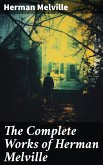
17,95 €
Sofort per Download lieferbar

17,95 €
Sofort per Download lieferbar
Ähnliche Artikel

5,99 €
inkl. MwSt. und vom Verlag festgesetzt.
Sofort per Download lieferbar

0,99 €
inkl. MwSt. und vom Verlag festgesetzt.
Sofort per Download lieferbar

1,82 €
inkl. MwSt. und vom Verlag festgesetzt.
Sofort per Download lieferbar
eBook, ePUB
22. März 2018
Charles River Editors

0,99 €
inkl. MwSt. und vom Verlag festgesetzt.
Sofort per Download lieferbar
eBook, ePUB
3. September 2018
ATOZ Classics

0,99 €
inkl. MwSt. und vom Verlag festgesetzt.
Sofort per Download lieferbar
eBook, ePUB
10. September 2018
Feathers Classics

1,99 €
inkl. MwSt. und vom Verlag festgesetzt.
Sofort per Download lieferbar
eBook, ePUB
26. November 2023
Good Press

5,35 €
inkl. MwSt. und vom Verlag festgesetzt.
Sofort per Download lieferbar

1,99 €
inkl. MwSt. und vom Verlag festgesetzt.
Sofort per Download lieferbar

2,13 €
inkl. MwSt. und vom Verlag festgesetzt.
Sofort per Download lieferbar

2,99 €
Sofort per Download lieferbar
Ähnlichkeitssuche: Fact®Finder von OMIKRON
